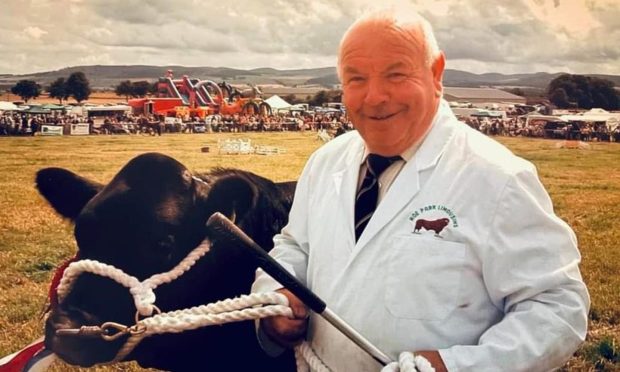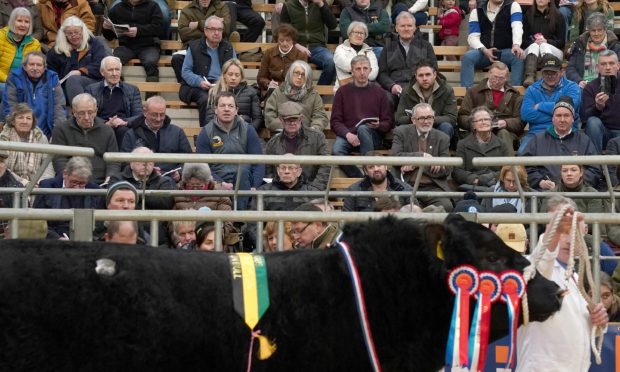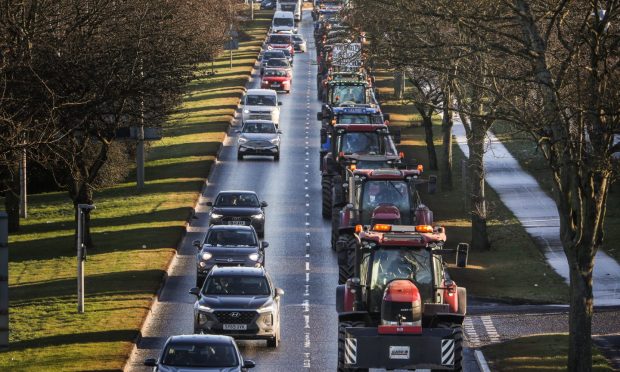I’ve never really been a fan of November, especially when it’s a wet, dreich one like this year. However, it’s the traditional time for retiring farmers to have a farm sale or “roup”.
There don’t seem to be as many these days, but when I was a schoolboy 30 years ago, there were always at least two or three to attend, plus they tended to be Saturdays which meant I didn’t have to fake another illness to get a day off school.
There are three types of roup attendees.
There are the serious buyers, the ones who have studied what’s for sale in the paper, decided they’re going to buy, no matter what, and turn up with the Jeep and flat trailer.
Then there are the locals who come along “just to show face” and obviously know how much rain there’s been the night before because they arrive rather smugly in the tractor.
Finally, there’s the third group, the ones who are just pleased to get an excuse to get away from the farm for the day and catch up with pals and neighbours.
They might buy something if it’s cheap enough (fat chance) and they turn up in an Audi saloon car and expect it to be able to drive through a churned up grass field.
We were always in the latter category.
The first port of call is, of course, the barn door (via the makeshift cafe for a bacon roll and cup of tea in a polystyrene cup) where all the small stuff is sold – basically all the junk out the workshop; junk that has probably just been bought at previous farm sales and never used.
This is also where any trainee auctioneer would get a chance to sell. I mean, you can’t go wrong trying to flog a tattie basket full of assorted bolts and hay bob tines for a quid, can you?
It’s at this point where great discussions take place between groups of pals, old and young. As you look round there is a collage of tammies, bunnets, tractor hats and bald heads nodding and shaking, discussing a whole range of topics such as the weather, the fat trade, who’s bought the farm, and who took a bonnie lassie home from the young farmers’ dance last Friday.
It almost feels like the constant rhythm of the auctioneer and what he is selling is a side show.
This all changes when the selling begins in the field, and suddenly a couple of hundred farmers move slowly, like a huge swarm of bees, to the rows and rows of machinery neatly laid out by the farmer.
This is when things take a more serious business-like turn, and you can easily spot who’s had their grain cheque – or, in later years, their single farm payment.
Bidding can be fierce and if the bids are going up in thousands rather than hundreds the crowd tends to hush for a bit, at least until the hammer falls.
I often compare it to a long-distance race. It starts off with about seven or eight in with a shout, but in the end it’s just two determined people going for it, hoping that the other one will chicken out first.
I sometimes think that within that split second when the bidder has to decide if he wants to bid again he must subconsciously think oFf what the look on his wife’s face is going to be when he goes home to tell her he bought a five-year-old grain bogie at almost new price.
Then after, an hour or two of bedlam, it’s all over, a whole life’s work transported away on the back of tractors, on lorries, trailers and in the boots of saloon cars.
I always feel for the outgoing farmer, once everyone is away and there’s nothing in the sheds but a few crushed up polystyrene cups. It must be very strange.
I’ll always enjoy my day at a roup, but hope that I never ever have to host one.










